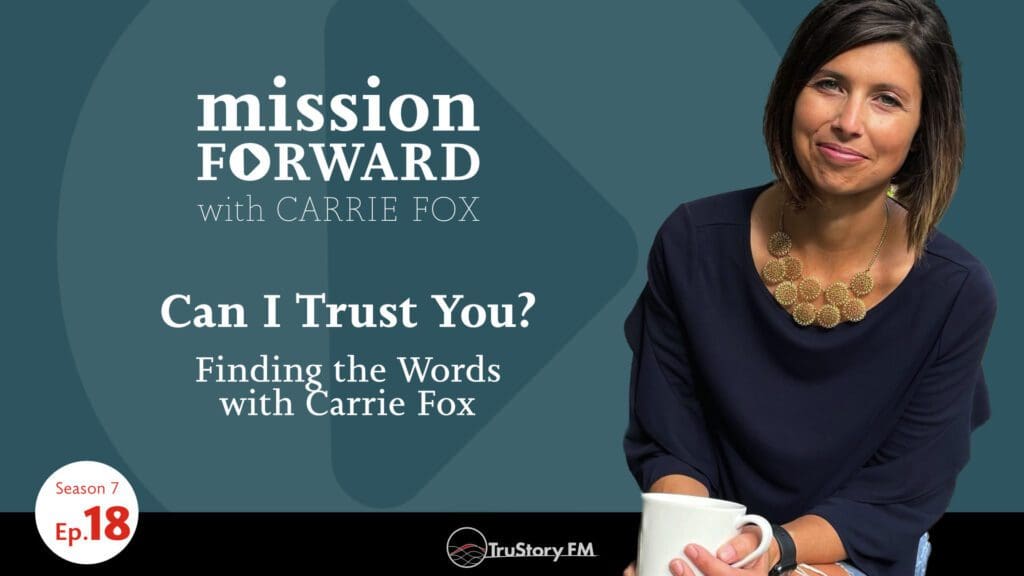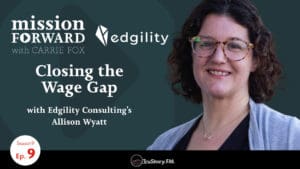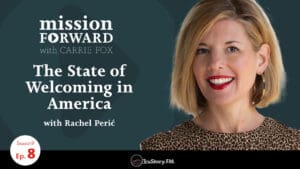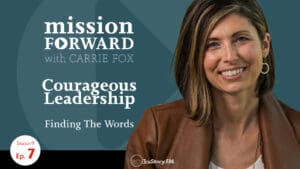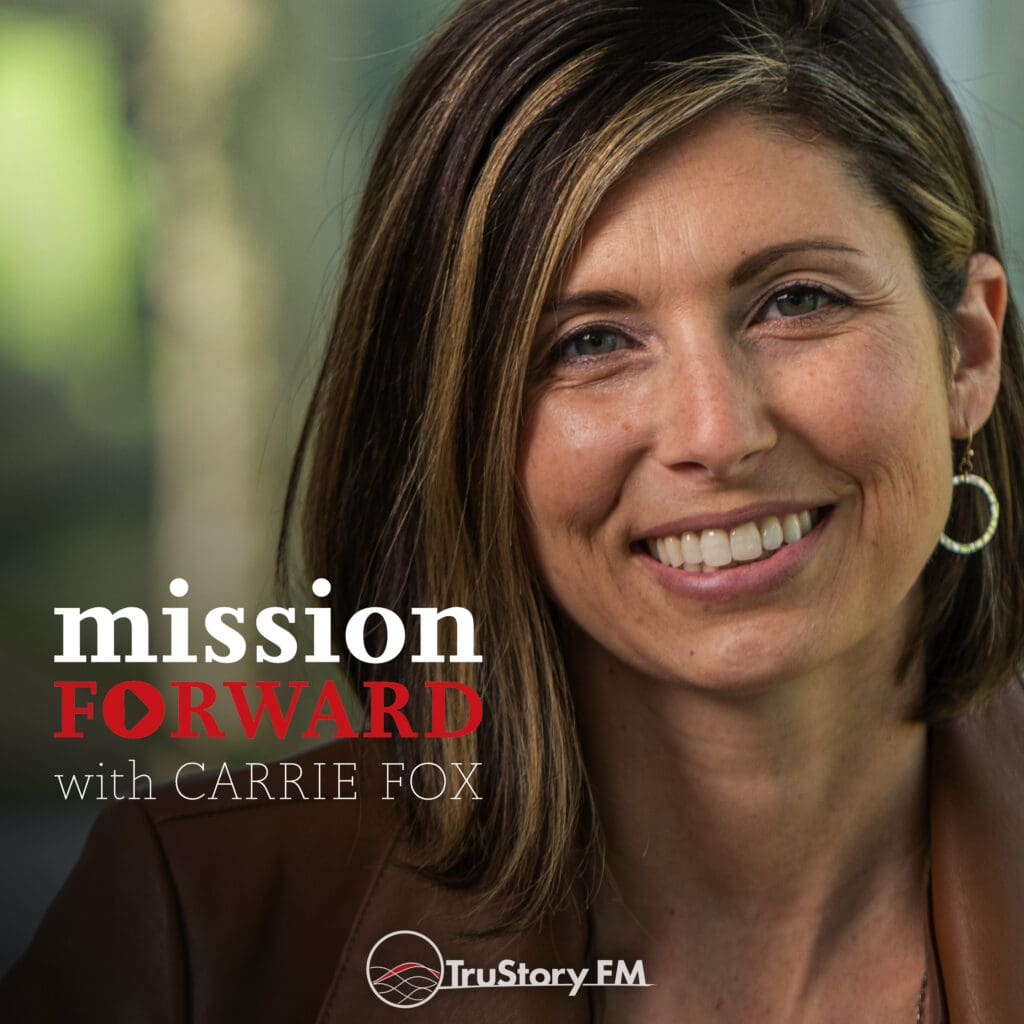You probably know the name Craig Newmark. You probably know his name as the founder of Craigslist, a web pioneer, a philanthropist, and—depending on your line of work—a staunch advocate on behalf of trustworthy journalism. (Learn more about that in our conversation on the Mission Forward podcast.) But there’s one equally important part of his bio you may not know: Customer Service Representative.
This week’s essay comes from the Finding The Words column, a series published every Wednesday that delivers a dose of communication insights direct to your inbox. If you like what you read, we hope you’ll subscribe to ensure you receive this each week.
Episode Transcript
Carrie Fox
Hey there, it’s Carrie Fox, host of the Mission Forward podcast. And I’m so excited to be bringing you this short form essay today. It’s one of my most recent essays from my weekly column I write called Finding the Words. And I wanted to share it with you because of how relevant it feels based on the conversations and the feedback that I’ve been getting from so many of you in recent weeks.
If you like what you hear, I hope you will head over to missionforward.us. You can read more from this essay and others. You can subscribe to get these essays delivered right to your inbox every Wednesday morning. And if you like this show or the podcast in general, I hope you will head over to wherever you listen to podcasts and give this show a rating or review.
But for now, on to today’s episode. Can I trust you? You probably know the name Craig Newmark. You probably know his name as the founder of Craigslist, as a web pioneer, a philanthropist, depending on your line of work, also a staunch advocate on behalf of trustworthy journalism. And if you don’t, I invite you to learn more about that in our conversation with Craig on this Mission Forward podcast. But there is one equally important part of his bio you may not know. Customer, service, representative. You got it. Craig often says that after he left the CEO role at Craigslist, he moved into his current role as a customer service rep, a position that he has been in for now 20 plus years. You know some people might think that’s a little cheeky honestly as Craig Newmark, customer service rep, but I can tell you having interacted with him for the better part of the last 15 years that no one, I say this again, no one has ever been as good at returning emails, calls and requests as timely as Craig Newmark. Yes, the billionaire and the philanthropist Craig Newmark, customer service rep.
With each interaction we’ve had I have come to trust that that Craig does what he says he’ll do and chief among those things is getting back to you. It’s not only part of his character, but it’s also part of his brand. As I say this, I am in the middle of several brand projects with our clients. Now I love facilitating brand conversations because they require that the people who hold and maintain any given brand get deeply explicit about what their brand represents and what it stands for. Just like Craig is deeply explicit about his role as a customer service rep.
One of the exercises that we use to help facilitate these conversations is called, quite simply, this or that, which helps identify key traits of a brand’s personality along a visual tightrope. Is this brand cautious or daring? Is it serious or playful? In most cases, the brand isn’t one or another, but somewhere in between. And when those characteristics are pulled together across multiple stakeholder groups, they can help form the most accurate grounding for an accurate and trustworthy brand experience.
However, this exercise comes with a warning label. Words need to have meaning, and a brand is more than words. When brands are built on terms that don’t match how an organization or a person operates, then the brand might as well have been built on a set of empty promises. For instance, it’s easy to say you’re daring, but if your practices don’t match up, people People will have no reason to trust you. And it’s easy to say you’re caring, but don’t expect people to trust you if you’re generally focused on your own self-interests.
Instead, think about your brand like Craig Newmark thinks of himself as a customer service rep. If you can be explicitly clear in who you are and who you’re not, and you commit to living out those words in every interaction, even when it’s difficult, then the more trusted you and by extension your brand will become.
So here’s today’s bottom line. How we show up is more than words we use or the snappy descriptions we print in our brand books. What we say and what we do need to match up over and over and over again. That’s what it takes to build a trusted brand. So can I trust you? (upbeat music)
And that brings us to the end of this short form episode of Mission Forward. If you heard something that’s gonna stick with you, drop me a line at carrie@mission.partners. And let me know what’s got you thinking. And definitely check out some of our longer form shows on the power of communications. Mission Forward is produced with the support of Sadie Lockhart in association with True Story FM. Engineering by Pete Wright. If your podcast app allows for ratings and reviews, I hope you will consider doing just that for this show. But the best thing you can do to support Mission Forward is simply to share the show with a friend or a colleague. Thanks for your support, and we’ll see you next time.
(upbeat music) [Music]
[MUSIC]







